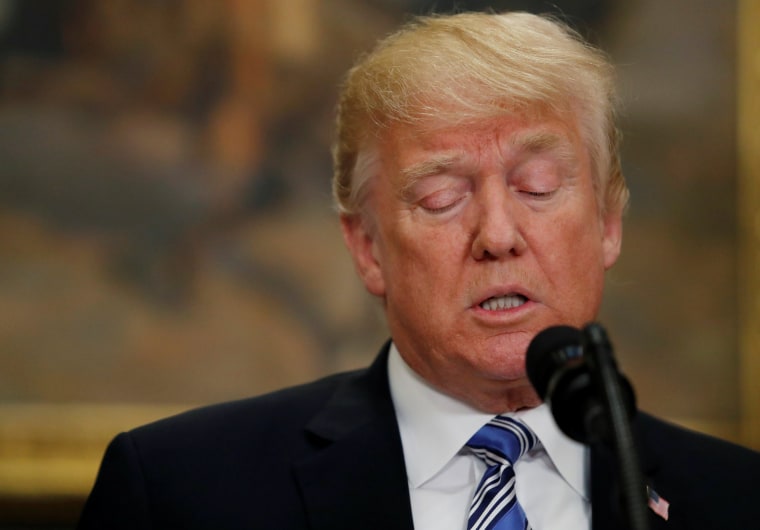As much of the world no doubt recalls, Donald Trump was recorded in 2005 bragging about committing sexual assaults. The Republican said, among other things, that he kisses women he considers attractive – “I don’t even wait,” Trump claimed at the time – which he said he can get away with because of his public profile.
“When you’re a star, they let you do it,” Trump said on the recording. “You can do anything. Grab ‘em by the p—y.”
After Trump denied having done what he bragged about doing, 11 women came forward to accuse the Republican of sexual misconduct – one of whom, Summer Zervos, is currently suing the president for defamation, after Trump insisted each of his accusers were liars.
Trump's lawyers have tried a variety of arguments to make the case go away -- the president has denied any wrongdoing -- but as of this afternoon, those efforts have failed. The Daily Beast reported:
A Manhattan Supreme Court judge ruled Tuesday that President Trump has to face a defamation lawsuit brought by former Apprentice contestant Summer Zervos. Justice Jennifer Schecter wrote that a "sitting president is not immune from being sued in federal court for unofficial acts," citing court precedent that led to President Clinton's impeachment in 1998. Justice Schecter subsequently denied Trump's "motion to dismiss this case or hold it in abeyance."This comes as Zervos, who accused Trump last year of sexually harassing her in 2007, sued the president for defamation after he suggested she made up the allegations for "ten minutes of fame."
Remember, the president's legal team argued, among other things, that a case like this one could "distract a president from his public duties to the detriment of not only the president and his office but also the nation."
Though the cases have some important differences, Bill Clinton's lawyers tried a similar tack in the Paula Jones case in the 1990s, and it didn't work out for the sitting president. Indeed, the New York judge cited this case in concluding today, "No one is above the law."
Today's decision will almost certainly be appealed, but in the meantime, the litigation can proceed. Of particular interest is what new information may be revealed by the discovery process.
Watch this space.
